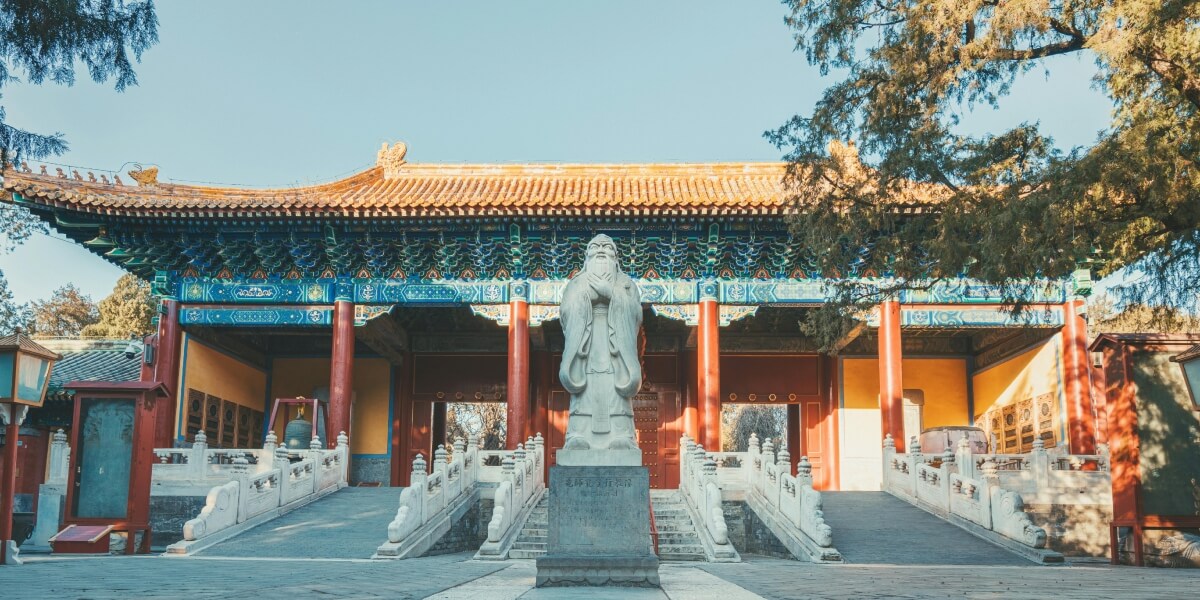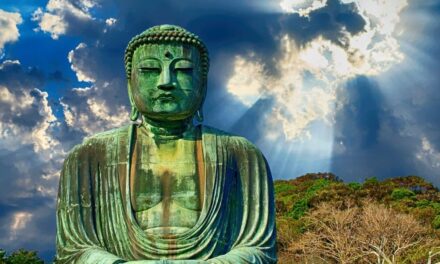Confucianism is a philosophical and ethical system based on the teachings of Confucius, a Chinese philosopher, that emphasizes moral conduct, social harmony, and respect for traditions. It is not considered a religion in the traditional sense, but it deeply influences Chinese culture and values.
Key Beliefs
- Ren (Humaneness): Central virtue promoting kindness, compassion, and empathy toward others.
- Li (Ritual Propriety): Observing proper conduct, rituals, and social norms to maintain order and respect.
- Xiao (Filial Piety): Respect and devotion to one’s parents and ancestors.
- Yi (Righteousness): Acting according to moral principles and doing what is right.
- Zhong (Loyalty): Loyalty to one’s family, friends, and society.
Sacred Texts
- The Analects: A collection of sayings and ideas attributed to Confucius and his disciples, focusing on ethics, politics, and personal conduct.
- The Five Classics: Ancient Chinese texts including poetry, history, and rituals, regarded as the foundation of Confucianism.
- The Four Books: Core philosophical works that provide insight into Confucian thought and moral teachings.
Key Figures
- Confucius (Kong Fuzi): The founder of Confucianism, whose teachings focus on morality, governance, and social harmony.
- Mencius (Mengzi): A major Confucian philosopher who expanded on Confucius’ ideas, especially regarding human nature and virtue.
- Xunzi: Another important Confucian thinker, who emphasized the need for education and social institutions to cultivate virtue.
Major Practices
- Ritual Observances: Performing rituals to honor ancestors, maintain social order, and express respect for traditions.
- Moral Education: Emphasizing learning and self-cultivation as lifelong processes for personal development.
- Family and Social Duties: Fulfilling obligations toward family, society, and the state in accordance with Confucian values.
Places of Worship
- Confucian Temples: Sites where Confucius and other philosophers are venerated, often associated with educational institutions.
- Ancestral Shrines: Locations where families conduct ceremonies to honor their ancestors.
Symbols
- The Confucius Symbol (Ru): Represents the teachings and wisdom of Confucius.
- The Five Relationships: An essential concept that emphasizes harmony through hierarchical relationships such as ruler-subject, parent-child, husband-wife, elder-younger, and friend-friend.
Holidays and Festivals
- Confucius’ Birthday: Celebrated annually to honor Confucius, with ceremonies and rituals at Confucian temples.
- Chinese New Year: A major festival that reflects Confucian values of family unity and respect for traditions.
Core Concepts
- Virtue (De): Moral excellence and integrity as a foundation for personal behavior and governance.
- The Rectification of Names: The idea that social roles and titles should accurately reflect one’s behavior and duties.
- The Five Constant Virtues: Humaneness, righteousness, proper conduct, wisdom, and faithfulness as guiding principles.
The Confucian Way of Life
- Family-Centered Values: Emphasizing respect for elders and strong family bonds.
- Learning and Self-Cultivation: Lifelong pursuit of knowledge and moral improvement.
- Social Responsibility: Acting in ways that promote harmony and order in society, based on Confucian principles.





